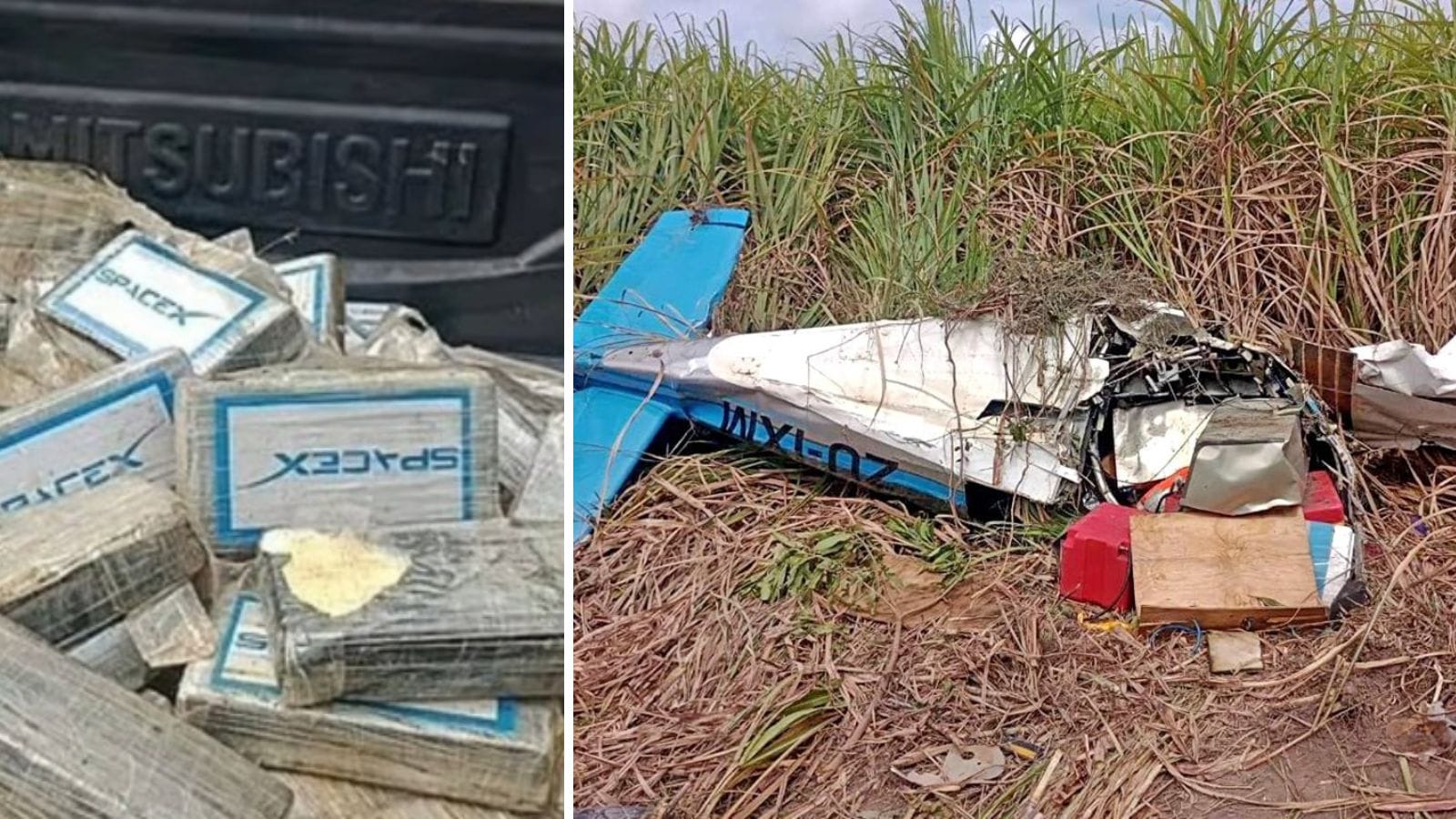Stay updated with the latest - Click here to follow us on Instagram
Australian pilot dies after crashing plane loaded with 200kg ‘SpaceX’ cocaine in Brazil
An Australian pilot, Timothy James Clark, died in Brazil after his plane carrying nearly 200kg of cocaine disguised in fake SpaceX packaging crashed in a sugarcane field.
 Authorities discovered between 180kg and 195kg of cocaine at the site, packaged into more than 187 bricks (left) wrapped with fake branding of SpaceX at the crash site (right). (Photos from social media)
Authorities discovered between 180kg and 195kg of cocaine at the site, packaged into more than 187 bricks (left) wrapped with fake branding of SpaceX at the crash site (right). (Photos from social media)An Australian pilot has been killed after his plane, loaded with nearly 200kg of cocaine wrapped in counterfeit SpaceX packaging, crashed into a sugarcane field in Brazil’s Alagoas state. Local media confirmed that the single-engine aircraft went down in Coruripe, on the country’s tropical coastline last Sunday.
The pilot, identified as 46-year-old Timothy James Clark, a businessman from Melbourne who had ties to the mining industry, was found dead outside the wreckage. The aircraft was registered in Zambia, Africa, and is believed to have been operating in Brazil for at least two years, according to reports.
Authorities discovered between 180kg and 195kg of cocaine at the site, packaged into more than 187 bricks wrapped with fake branding of SpaceX, the aerospace company run by Elon Musk. Federal police described the case as evidence of international drug trafficking.
“The investigation will continue to deepen the facts and identify the owner of the illicit material, through the opening of a police inquiry,” The Independent quoted local media which quoted a statement issued by the Federal Police.
Reports noted that traffickers have previously used the branding of high-tech companies on illicit drugs. In the past, Tesla logos have appeared on MDMA pills, alongside references to companies like Skype and TripAdvisor, in an effort to market narcotics with recognisable global symbols.
Emergency response and investigation
The fire department was alerted to the crash at 1.48pm and six officers were dispatched due to concerns of an explosion, The Independent reported. No detonation occurred, but debris from the plane and drugs were scattered across a sugarcane field. The seized cocaine was later transferred to the Integrated Public Security Centre in Coruripe.
Authorities noted that the plane was equipped with additional fuel tanks, raising suspicions that it had travelled a long distance. However, officials have not confirmed where the aircraft took off from or its intended destination. Investigators are also examining whether Clark had prior knowledge of Brazil’s air routes.
Em Tempo Noticias reported that Alagoas may have been used as a stopover in an international trafficking route. Meanwhile, the Federal Police highlighted that in 2024 alone, Brazil seized 74.5 tonnes of cocaine — an increase of more than two tonnes compared to the previous year.
The street value of the cocaine recovered from the crash is estimated at nearly $300,000 (Rs 2.64 crore).
Investigators are working to determine whether the Australian pilot was directly involved in the trafficking network or if he was unknowingly transporting the narcotics. Further forensic and post-mortem examinations are underway to establish the cause of the crash.
- 01
- 02
- 03
- 04
- 05






























